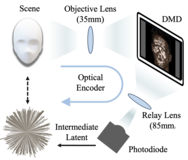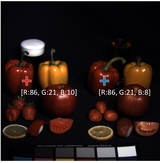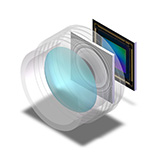|
I am a Ph.D. student at KAUST Computational Imaging Group, working with Prof. Wolfgang Heidrich. My research is centered on the innovative fusion of deep reconstruction algorithms and end-to-end optics design. This involves developing deep learning models and formulating optimization strategies that incorporate optical elements into the computational loop. Focusing on the following topics: |

|
|
|

|
Ph.D. in Computer Science King Abdullah University of Science and Technology (KAUST), Saudi Arabia 2022 - Present |

|
M.Sc. in Computer Science King Abdullah University of Science and Technology (KAUST), Saudi Arabia 2020 - 2022 |

|
B.Sc. in Electrical Engineering Universidade Federal do Rio Grande do Norte (UFRN), Brazil 2015 - 2019 Graduated with Highest Honors • Best Student Award, Class of 2019 |
|
|

|
Research Scientist Intern in Computational Imaging Meta Reality Labs - Surreal Team Mentored by Michael Goesele June 2025 - November 2025 |
|
|
 
|
Matheus Souza, Yidan Zheng, Kaizhang Kang, Yogeshwar Nath Mishra, Qiang Fu, Wolfgang Heidrich CVPR 2025, Code
|
 
|
Qiang Fu*, Matheus Souza*, Suhyun Shin, Eunsue Choi, Seung-Hwan Baek, Wolfgang Heidrich Computational Optical Sensing and Imaging, 2024. Oral Presentation IEEE TCI
|
 
|
Xinge Yang, Matheus Souza, Kunyi Wang, Praneeth Chakravarthula, Qiang Fu, Wolfgang Heidrich Siggraph Asia 2024. Paper (Arxiv) / Paper (PDF) / Supp (PDF)
|
 
|
Matheus Souza, Wolfgang Heidrich MetaISP VMV 2023 / Code CRISPnet: Color rendition ISP net. Paper (Arxiv)
|
|
The website template is from Dr. John Barron. |